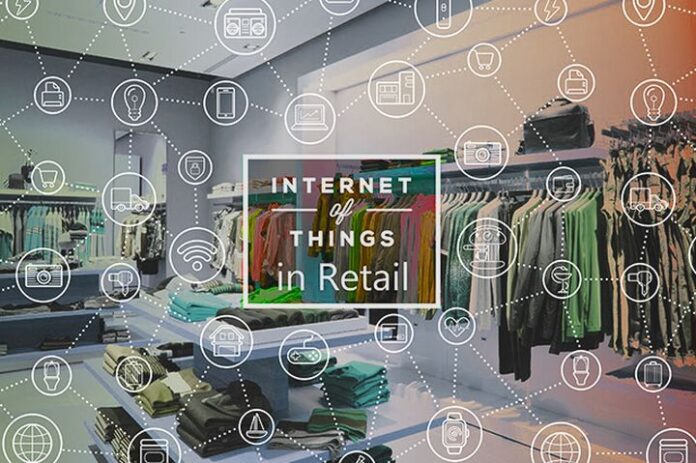
Many things around us aren’t the same as we remember them from a few years ago, and the retail industry is not an exception. With the new technologies and their wide use, even the retail as we know is going through a lot of changes, and most of them are for good.
Probably you’ve already heard about the Internet of Things, or the shorter version of IoT, which refers to the smart technologies and devices we use today, so we can make our life easier. It requires integration between software, hardware, phones, data services, and systems, so all the information can be useful for the people who are working in retail. Also, it helps them to come up with creative and effective solutions to the most common issues, calculate the costs, and always be aware of the stock left in the store, before ordering a new bunch of the products.
If you check Softengi, you will discover more on this topic and which methods and approaches are used, so the retailers can understand what their clients want, and how to recognize their behavior, so they can offer the exact product or service they need.
At this point, we have to say that almost every industry is a suitable candidate for the use and implementation of IoT, and it must be noted that many are already applying for those benefits – from voice commands, assistance, automated services, virtual shopping lists and so on. And best of all, it all applies to small businesses, and even to individual retailers who have fewer customers.
How can IoT be used in the retail industry?
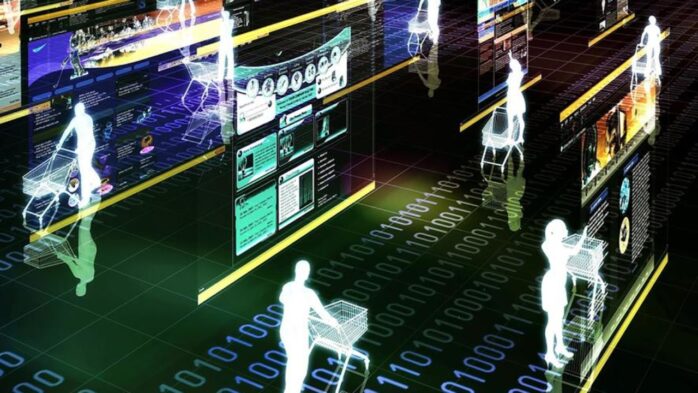
There are many ways to implement and use it efficiently, but the most basic goals are process monitoring and overall performance so that smarter supply and sales decisions can be made in the future. However, here are a few areas where the IoT plays a really important role:
1. Logistics and supply
Every store, bigger or smaller, no matter what they sell, must make sure that there is enough stock of the products, but also that they are stored in appropriate conditions, so that they do not spoil. Tracking systems always have the appropriate information, such as temperature control, discounts, tracking of warehouse stock, distribution, and store management. With the right application of the right IoT tools, efficiency can be gradually increased and result in better profits. This part includes the modernization of the whole process, fast attachment of product tags, fast reader for them so that every customer gets the necessary information about the product they want to buy.
2. Personalized communication with clients
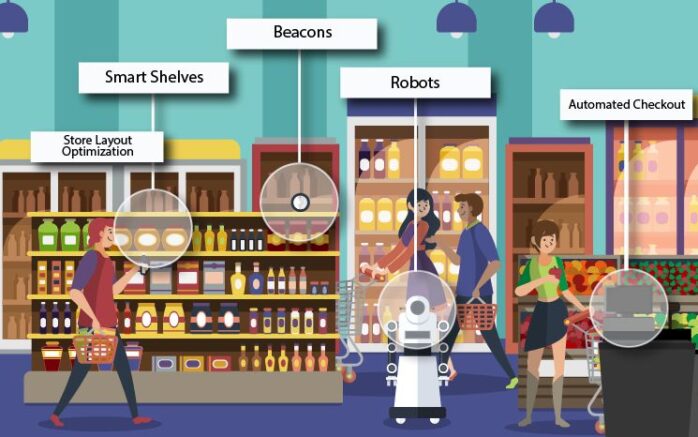
With the help of the information that the IoT collects for each consumer, communication is improved, especially when it comes to online shopping. Thus, the buyer can get personalized service and based on previous experiences, get appropriate recommendations for what to buy next. Many department store chains already use this approach and have their own mobile applications. With the help of all the data collected, through that application, the user will receive notification about products that are of interest to him, but also an appropriate offer, based on the latest searches.
3. Monitoring the safety in food stores
Annually, large quantities of shelves in the markets spoil and must be destroyed. This is especially present in stores where fresh food is sold, ie fruits and vegetables, but also other groceries that have a short shelf life. But with the help of the data we have thanks to the IoT, we can follow this process, first of all in terms of providing appropriate storage conditions for specific products. We can also track which batch of stock is before spoilage or expiration, so take appropriate action for that amount of food. In this way, retail employees can be sure that they will keep the food fresh, as much as it allows, but also that they will remove it in time in case of expiration of the deadline.
4. Benefits for asset tracking
This technology is also used to track lost shipments, to lose the cost incurred if the buyer requests a refund. They can also have control over carts and baskets, as there are irresponsible buyers who take these pieces of inventory out of the store and leave them in the parking lot. As a result, many supermarket chains use tracking tags to locate baskets and shopping carts. They are not free, the market buys them and leaves them to the users to use them responsibly, in order to reduce the cost for new ones.
5. Smart shelves
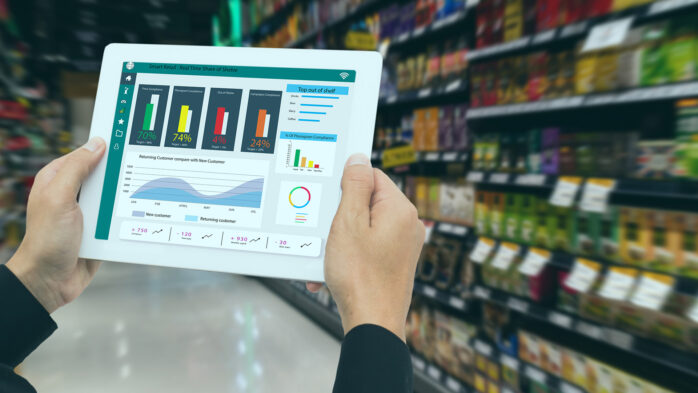
This innovative model allows both buyers and owners to constantly have insight into what is on the shelves and when stock needs to be replenished. They are useful for monitoring the sales process, but also for every aspect we have mentioned before, including the one for monitoring the quality and potential spoilage due to the shelf life.
6. Creating loyalty programs
Retail is a service industry and their focus group is consumers. With the help of IoT solutions, one can compete for different loyalty programs, but also achieve higher levels, for greater benefits. Consumers themselves can apply similarly, but even the most basic loyalty cards contain all the necessary information about the benefits it has the right to achieve.
As you can see, the application is very broad and is not limited to these aspects that we have listed. However, the decision of what and how it will be applied is really individual and depends on the business owners.
Conclusion
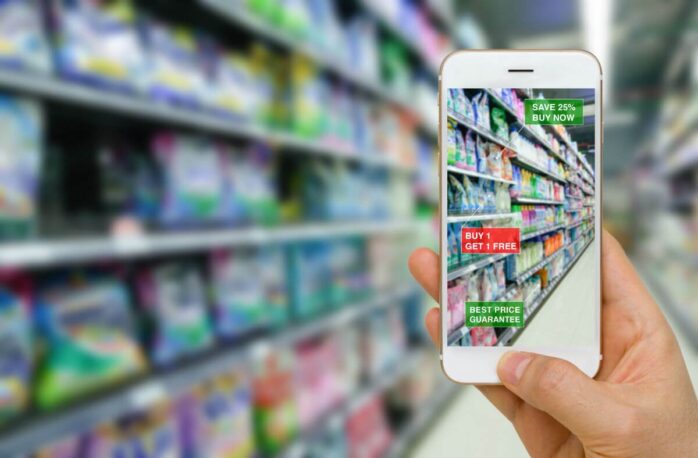
IoT offers optimal solutions for almost every existing industry, in order to improve service and profitability. Retail is one of the most important industries in the economy because it serves a huge number of people. That is why advanced solutions are needed, in order to be able to properly serve all customers, but also to constantly renew the stock, to offer discounts and benefits, and also to be competitive between related industries. You only need to take one step further so you can accomplish your goals as a retailer.





